THE GAMES WE PLAY: THE QUEER FUTURITY OF SOCIAL CHOREOGRAPHY
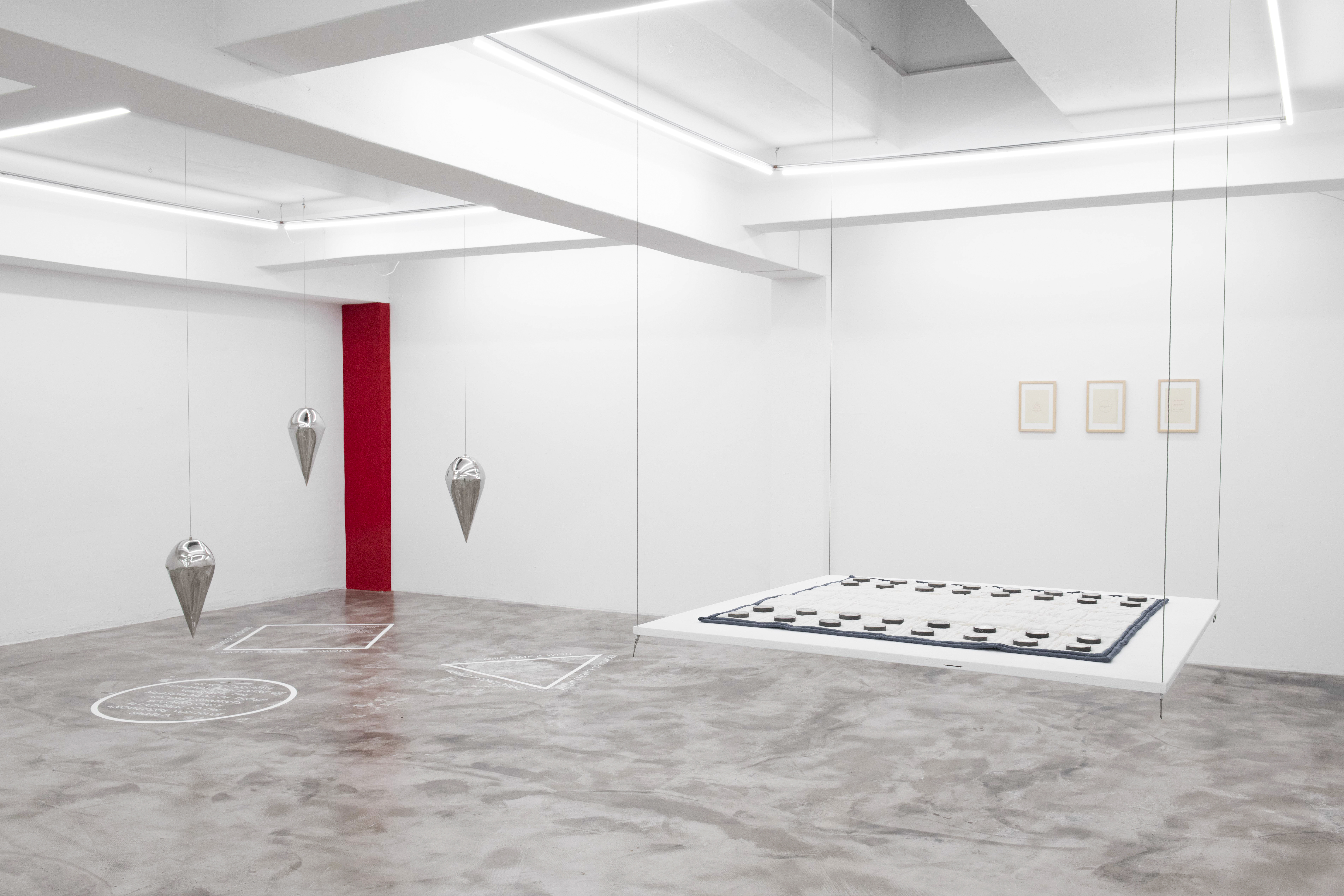


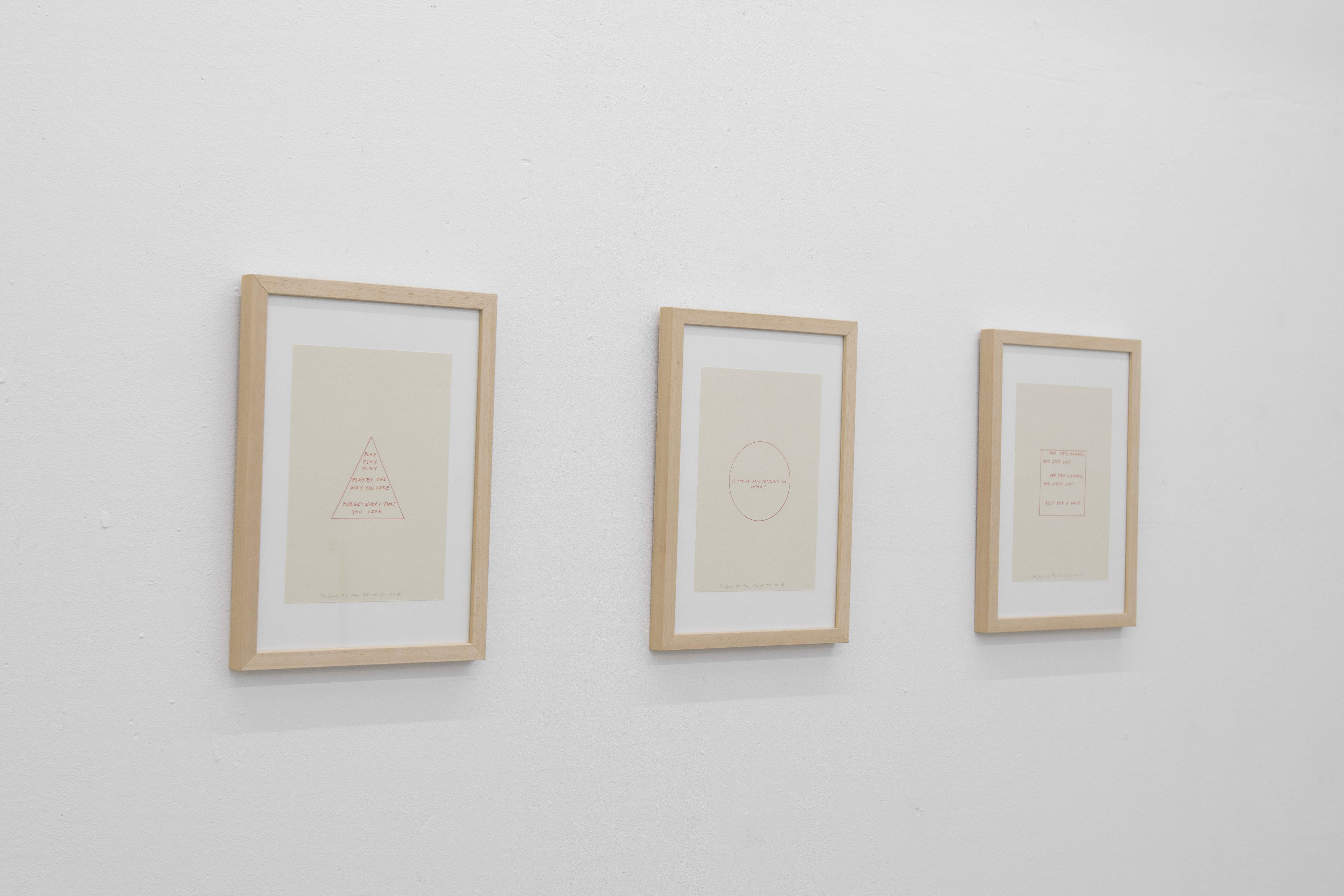
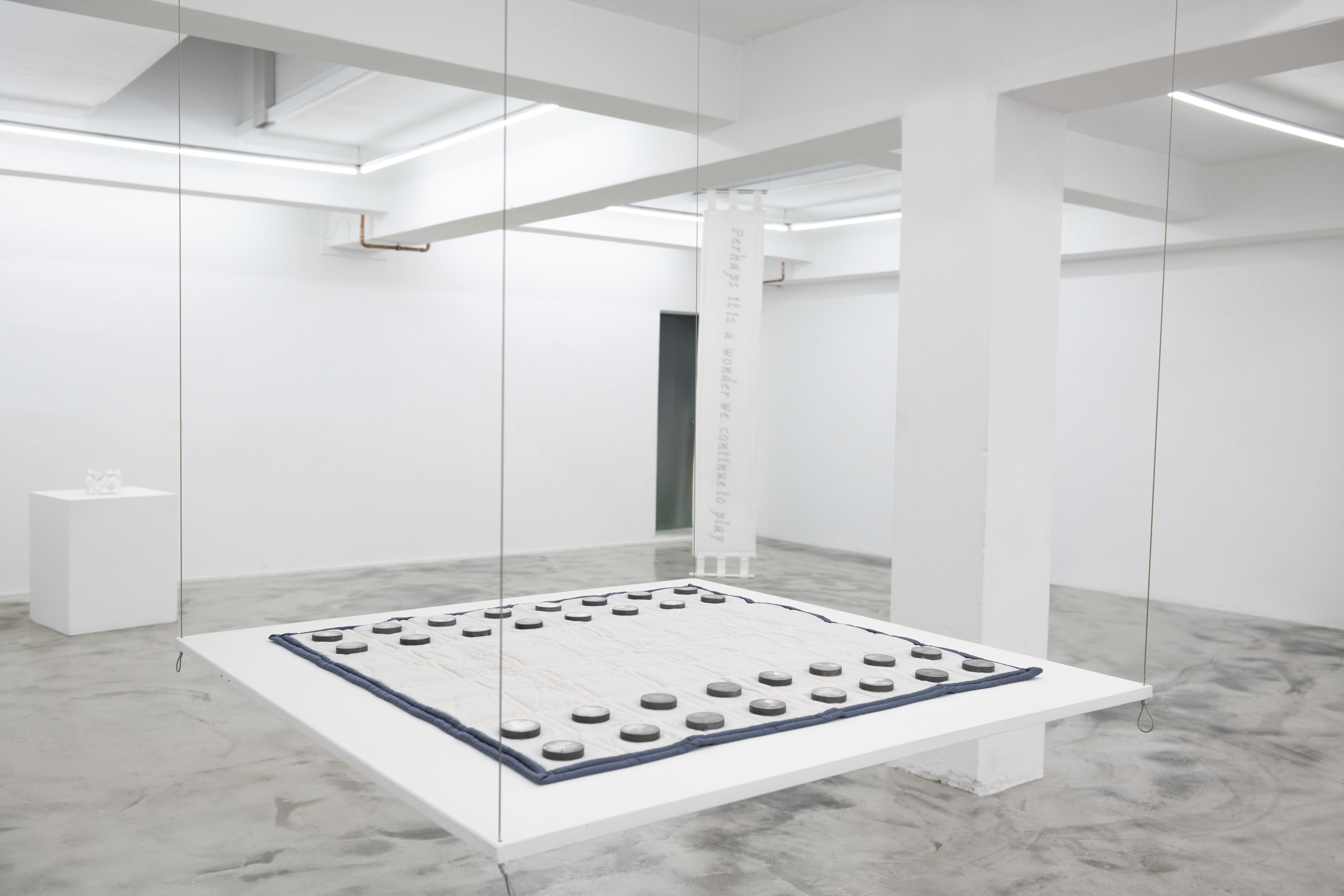



26-01-’24 till 25-02-’24
ANDREA KNEZOVIĆ | THE GAMES WE PLAY: THE QUEER FUTURITY OF SOCIAL CHOREOGRAPHY
Curated by Àngels Miralda
INDEBT is pleased to present the first solo exhibition by Andrea Knezović in the Netherlands. Her work, informed through artistic research, focuses on the psycho-social repercussions of relationships between individuals and institutions through play, queer systems, and mythologies of certainty. The exhibition acts as a mapping process of play and trauma, reflecting personal and institutional care strategies. Her practice is informed by psychology including theorists Eric Berne who developed the theory of transactional analysis. Hubert Damisch’s institutional critique strategies and José Esteban Muñoz’s queer futurities enter the psycho-cultural negotiations that Knezović posits through auto-ethnographic topologies. Queer kinship, institutional and inter-generational traumas, and tropes that disclose the tactics of socio-emotional precarity are the pieces that move in a spatial mind-map turned game-board.
…(Repetición de Amores) y Arte de Ajedrez…
A precursor to the modern game of chess was introduced to Europe through Andalusi Iberia where elements such as the queen were added and recorded in Francesc Vicent’s first treatise on the game in 1495. The game travelled from Central Asia, through Persia, and the Arab world, altering rules and players along the way. The elements of the game describe a society occupied with strategies of war, defence, and strict hierarchies in which the mind organised the battlefield. The games we play are not simple entertainment, but a description of the social roles we self-ascribe, and like mythology, are subject to constant generational re-interpretation.
Andrea Knezović’s Chess of Rites is an artistic intervention onto the board that favours horizontality rather than hierarchy and induces psychoanalytical self-reflection rather than rivalrous competition. The suspended board is made of soft silk fabric and the traditional chess pieces transform into a single colour of pawns that look inward to the self rather than outward to attack. Players start with their own sets which slowly become intermingled to the point of indistinguishability. They are inscribed with terminology referring to Jungian analysis through Erik Ericson’s eight stages of identity development and Eric Berne’s transactional analysis. This line of thought developed as an active therapeutic method that examines roles through speech analysis. The game becomes a mental game board whose objective is to blur the boundaries of the self and the other and to heighten self-awareness of our own being.
…Leviathan…
Thomas Hobbes’ 17th-century Leviathan was one of the first treatises to develop a notion of the “social contract". Institutions are amalgamations of power made up of the subjectivities, labour, and will of a multitude. This construction opens a useful imaginary for us to understand the relationship between the individual and the constitution of authority in which dissent and difference threatens the unity and stability of the establishment. Yet, Hobbes’ crafting of the state is built on a hierarchical and conservative order that must be cracked by the deviant. In José Esteban Muñoz’s Cruising Utopia, the individual is connected with collective liberation struggles through queer subjectivity. It is through this perspective of queer joy and the imagination of the possible future that two textile signs proclaim “Sometimes it is a miracle we all listen,” and “Perhaps it is a wonder we continue to play.”
The childlike joy of the “play” is embedded into spatially interspersed diagrams around a sculptural installation of three metallic plumb bobs. References to Berne’s three stages of development (parent, adult, child); they create paths, gravity, and rotation around a theatrical set in which physical motion gains the symbolic meaning of a life-size game board. Graphics display geometries and phrases that provoke our imagination as real and fictitious boundaries of the body and mind. This game, with rules based on free association, is a tool for collective care and self-reflection that carries with it the conviction that brighter futures can be achieved through individual and collective work, care, and the power of conversation.
Andrea Knezović (1990) is a conceptual visual artist and researcher with a Master’s degree in Artistic Research from the University of Amsterdam and a Bachelor’s degree from the Ljubljana Academy of Visual Arts. Knezović’s research interests centre around the politics of care, its institutional implications and mythological aspects. Knezović is chair of the board of the Salwa Foundation, founder of the Matters in Chatters and co-founder of the art and research platform MARC Amsterdam. She has contributed to various discursive journals including MIT Press Thresholds Journal, Lish Journal London and Simulacrum. She has exhibited in the Museum of Contemporary Art Metelkova, Ljubljana; Cukrarna, Ljubljana; MIT Keller Gallery, Cambridge, MA; Nieuw Dakota, Amsterdam; 12 Star Gallery, London; The Center for Digital Arts, Holon; Kiribati National Museum, Tarawa; Marx Halle, Vienna; and others. Her works are part of various private and museum collections. In 2013 and 2015, she was nominated for the Essl Art Award. She lives and works in Amsterdam and is part of the BAK Fellowship for Situated Practice.
Àngels Miralda (1990) is an independent writer and curator. Her recent exhibitions have taken place at Something Else III (Cairo Biennale); Garage Art Space (Nicosia); Tallinn Art Hall (Estonia), MGLC - International Centre for Graphic Arts (Ljubljana), De Appel (Amsterdam), Galerija Miroslav Kraljevic (Zagreb), the Museum of Contemporary Art of Chile (Santiago), Museu de Angra do Heroísmo (Terceira - Azores), and the Latvian Centre for Contemporary Art (Riga). Miralda regularly publishes her writing for Terremoto (Mexico City), A*Desk (Barcelona), Arts of the Working Class (Berlin), and is editor-in-chief at Collecteurs (New York).
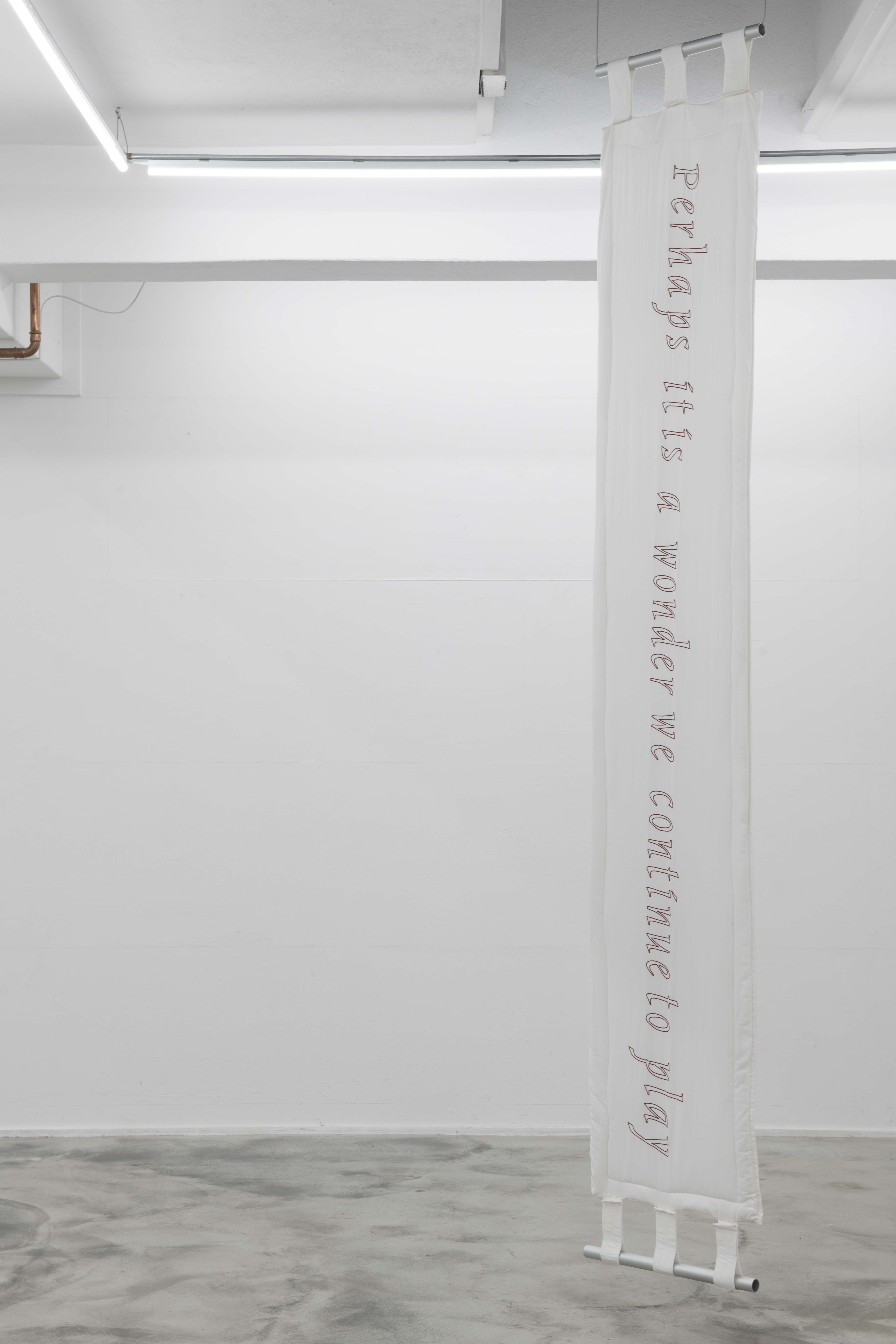
Sometimes It Is A Miracle We Listen, 198 x 37 cm, Handmade textile installation, Embroidery cotton. Edition: Unique, 2019
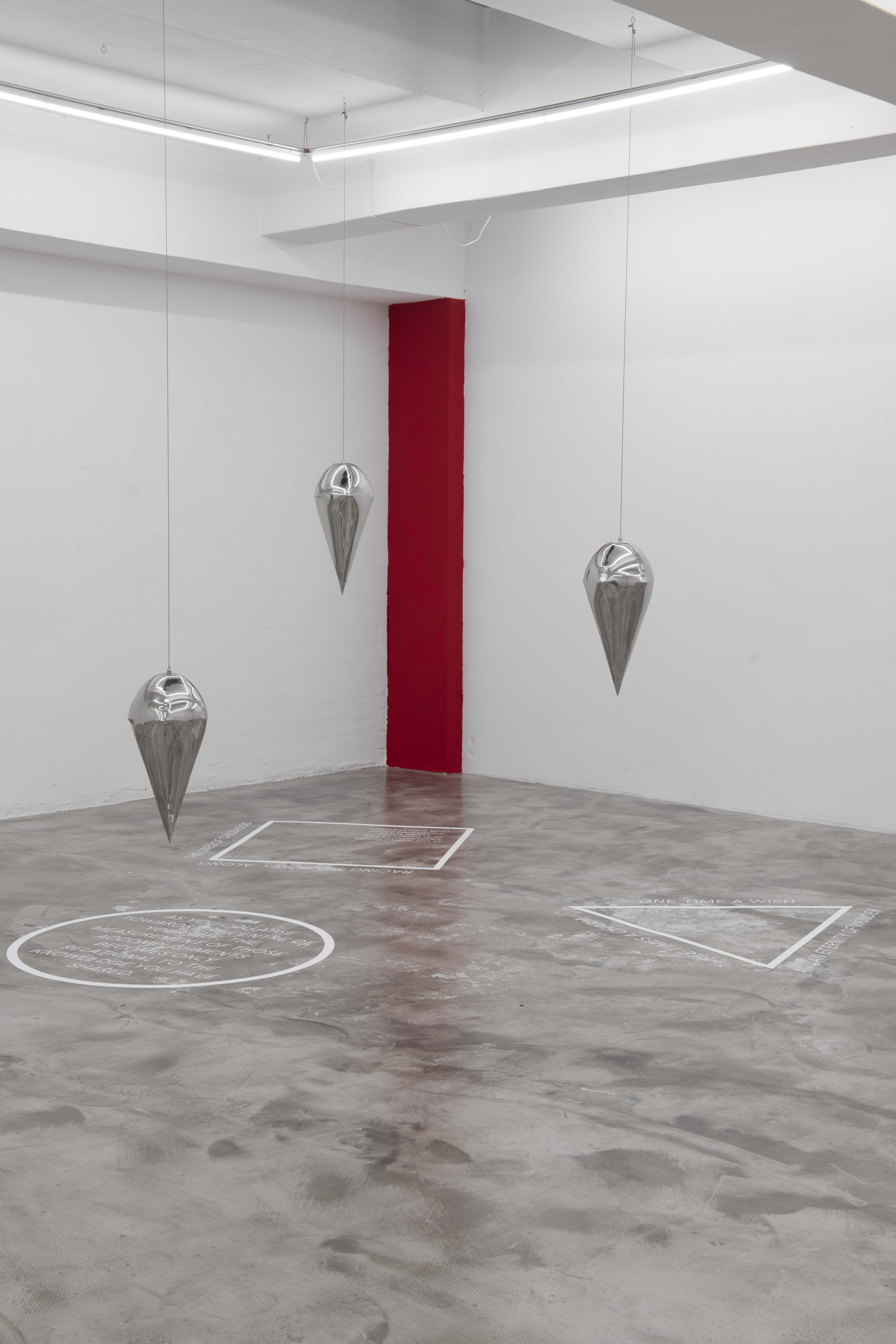 Taking Chances, Betting Memories, 24 x 52 cm, aluminum/bronze plated, hand-blown metal installations, wire, Edition: Unique, 2023
Taking Chances, Betting Memories, 24 x 52 cm, aluminum/bronze plated, hand-blown metal installations, wire, Edition: Unique, 2023 The Chess Of Rites, 90 × 90 cm, cotton and silk (handmade), 32 custom engraved figures from metal, Edition: Unique, 2019
The Chess Of Rites, 90 × 90 cm, cotton and silk (handmade), 32 custom engraved figures from metal, Edition: Unique, 2019